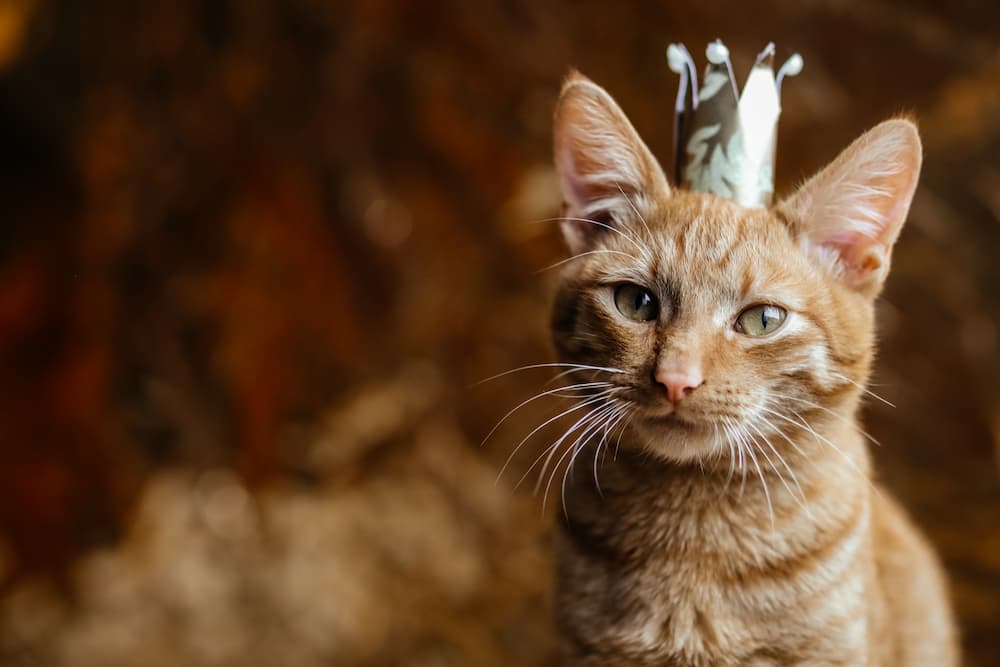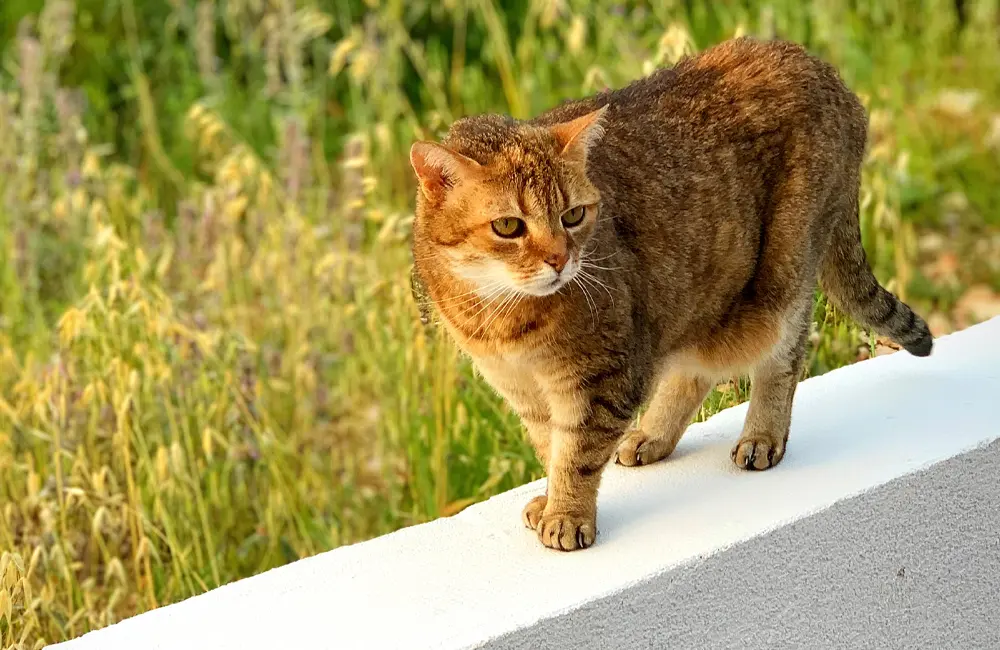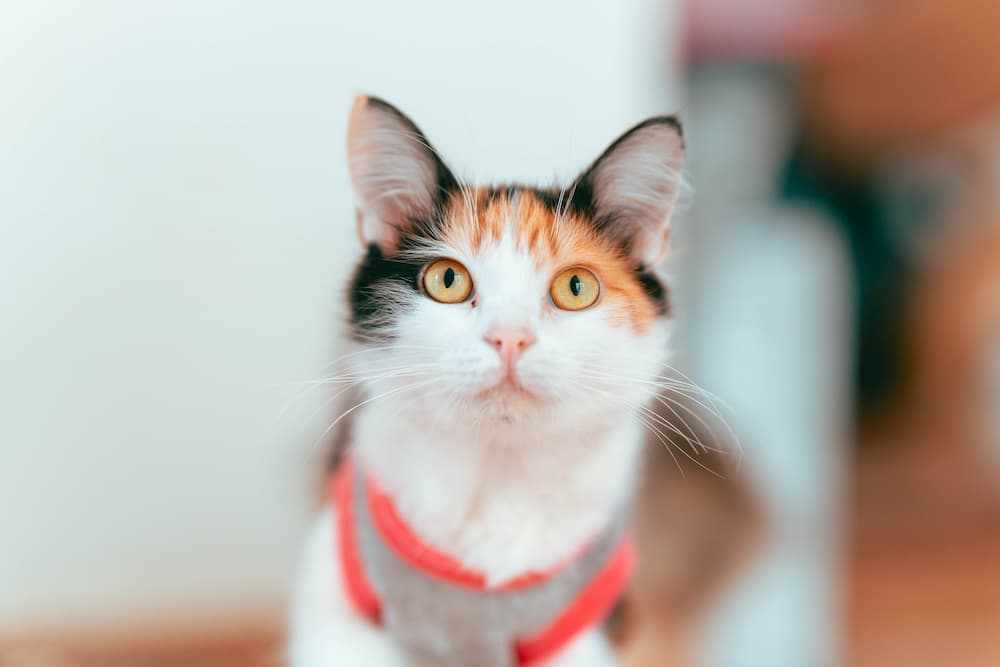Many pet owners and animal lovers alike choose to follow a plant-based diet. There are many benefits to a vegan diet, namely that it’s a sustainable and ethical way to live. But some pet owners have not only adopted this diet for themselves but for their pets, too. Interest in plant-based diets for pets has increased, particularly in younger pet owners. Even major pet food brands are offering plant-based options to appeal to this growing trend—but is it really better for our furriest friends?
Vegan pet diets are on the rise
A recent study found a growing number of pet owners are feeding their dogs and cats vegetarian or vegan diets – or would like to do so. Pet owners tend to have higher empathy toward animals, and clearly want to provide diets that will benefit their pet’s health. They are also choosing plant-based pet foods to reflect their concerns about the ethical and moral implications of animal-derived products and farming practices.
Related: Need Help With Vet Bills or Pet Food? There ARE Resources Available!
Millennials are leading the vegan revolution
Research in the UK found that it’s generally the younger generation (those aged between 16-24) who are most likely to cut red meat and to limit meat products in their pet’s diet. Along with the moral and ethical dilemmas of meat-based foods, 76% of these pet owners cite that they are choosing to feed their pets a vegan or vegetarian diet as they believe it’s better for digestive health.
This trend is also reflected in North America, with the American Veterinary Medical Association noting that “interest in, and availability of, plant-based diets, are growing in popularity in the North American pet food market.”
Major pet brands going meat-free
Major pet food brands such as Purina, Pedigree, Natural Balance, and PetGuard have entered the plant-based market by offering meat-free dog and cat food. These plant-based options include vegetables and plant-derived proteins such as brown rice, barley, peas, spinach, and potatoes.
Like those in the UK, American pet owners note their concerns that some mass-produced pet food could contain meat sourced inhumanely. For this reason, they are choosing plant-based options for their pets in a bid to be more kind to their pet’s wellbeing and to animals at large.
Supermarket pet foods are often composed of ground-up animal parts that the U.S. Department of Agriculture inspectors have deemed unfit for human consumption. Along with this, most of these pet foods also contain hormones, pesticides, and antibiotics that can be toxic to pets.
In the UK study, seven in ten (71%) of pet food buyers said that a pet’s diet has a direct impact on its emotional wellbeing. Similarly, pet owners in New Zealand have shared the benefits a vegan diet has had on their pet’s health, citing great health and a healthier nervous system as some of the improvements from a plant-based diet.
Always seek guidance from a vet before changing your pet’s diet
As most people consider their pets as part of their family, keeping our pets healthy at home or on holiday is always the number one priority. So it’s important for pet owners to seek professional guidance when it comes to choosing the best foods for their pets.
Consulting a vet is always recommended before any pet owner decides to switch up their pet’s diet, especially if you’re making the switch to homemade pet food. “While it’s important that pet owners feel comfortable with what they’re feeding them, it’s important to keep in mind that dogs aren’t tiny humans and they have different requirements,” says Megan Shepherd, a doctor of veterinary medicine at Virginia-Maryland College of Veterinary Medicine.
Dogs are omnivores and not herbivores, meaning that they can eat a wide variety of foods but it’s essential for pet owners to choose foods that contain key vitamins and nutrients to sustain their pet’s health.
Important supplements such as amino acids, omega 3, and vitamins A and B are required in pets diets and may not be present in plant-based pet food. There are plant-based pet foods on the market that include these crucial nutrients, however, there hasn’t been enough research to support their long-term health benefits.
Related: 3 Reasons to Feed Canned Instead of Dry
Cats need meat – there’s no way around it
It’s a biological necessity that cats must eat meat, as they are obligate carnivores and their gastrointestinal tracts and metabolism have adapted to having protein through the meat. If you are making any changes to your cat’s diet, make sure to consult a vet first. If your cat has any nutritional deficiencies, your vet may suggest digestive enzymes and probiotics, plus giving your feline the meat her body needs.
Interest in feeding pets a plant-based diet is likely to grow in the next couple of years. More people are discovering the health benefits a vegan diet has on humans and have a desire to mimic the same for their pets.
If a pet owner is considering putting their pet on a plant-based diet, it’s best to first arrange an appointment with their vet and get professional guidance to ensure their pet is getting the right nutrients it needs to thrive.







